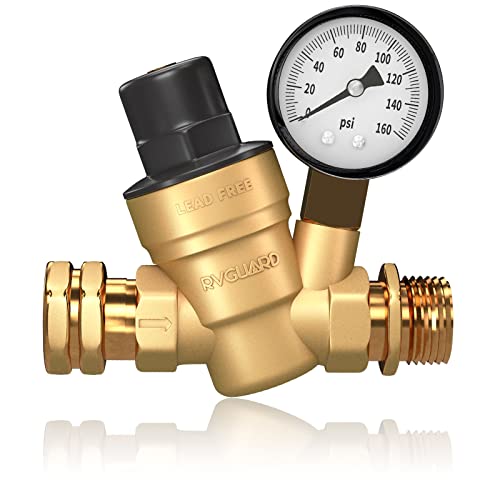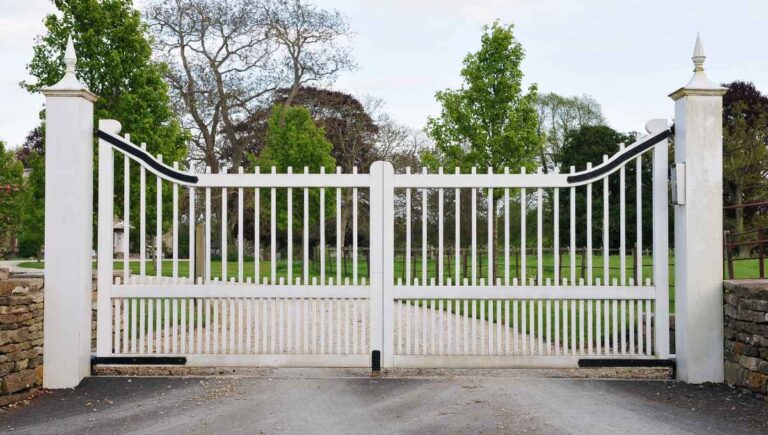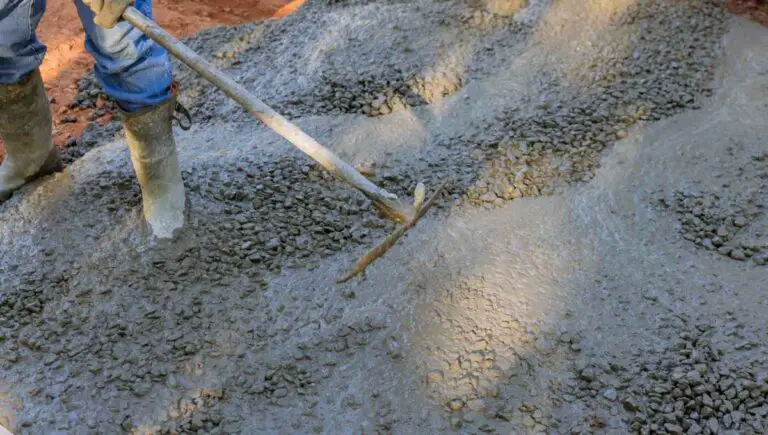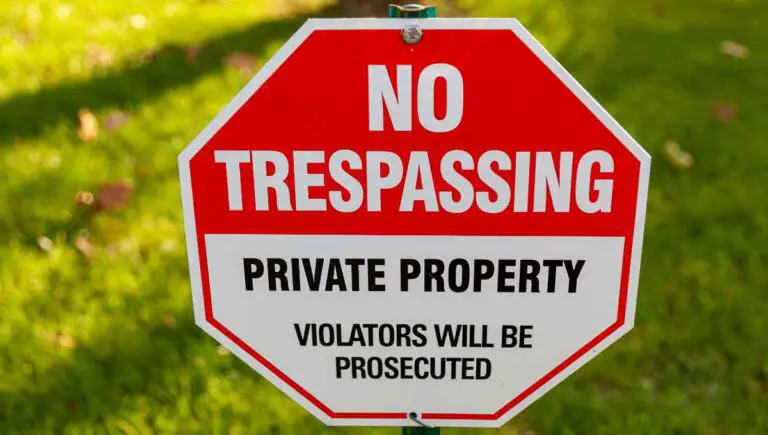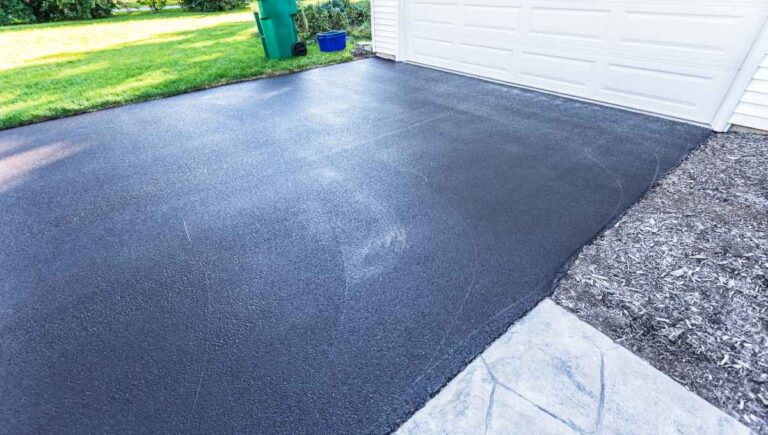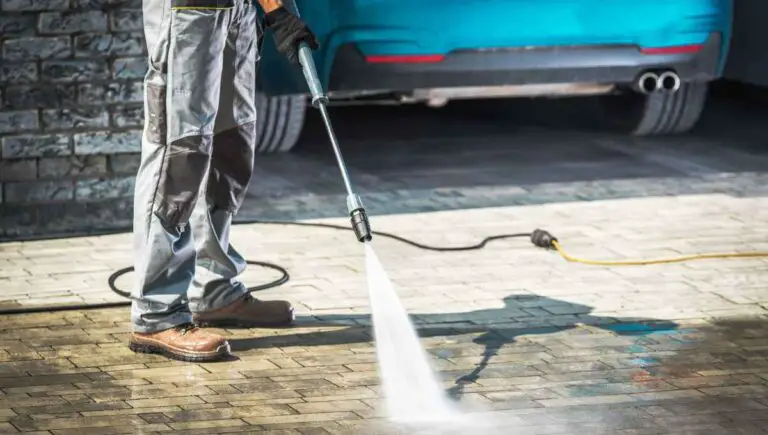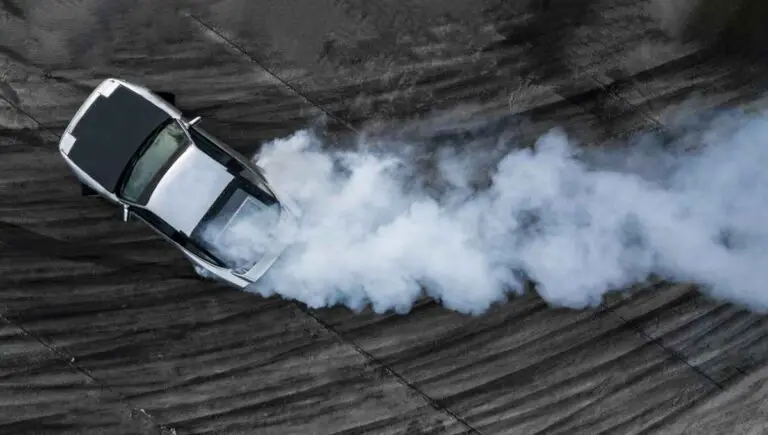Can I Put a Driveway Over Water Lines? (Check This First)

There are a lot of headaches associated with installing a new driveway. Not only do you need to be aware of local building regulations, but you also need to keep an eye out for utility lines. Can you put a driveway over water lines?
You can put a driveway over a water line if you ensure that the line is not damaged. The pipes should be deep enough and protected not to get damaged by the concrete or the weight of the vehicles driving overhead.
You will need to contact the water company to check whether they allow driveways over their lines and what contractors they would suggest working with. In this article, we’ll look at the steps you should follow when installing a driveway over water lines.
This post contains affiliate links from Amazon and other stores. This means Yard Blogger may earn a commission if you make a purchase using any of our links. Please refer to our full affiliate disclosure policy for full details.
Here’s a Quick Pro Tip!
Products you will need to install a driveway over a water line
1. Marking Flags– can be used to clearly mark the water line’s path.
2. Flow meter– can be used to check the amount of water flowing out of the pipe.
3. Pressure Gauge– can be used to check for water pressure drops due to leaks.
How to Safely Pour a Driveway Over Water Lines
Generally, it is safe to drive over underground pipes if they are buried deep enough and with the right amount of soil. If you did not install the pipe, you would have to trust that the builder followed regulations and the pipe is buried deep enough.
Pouring Concrete Over a Water Line
You can pour concrete over a water line. However, it is a delicate task. We highly recommend having a professional pour your concrete, preferably someone who has experience pouring concrete over water lines.
Here are some factors that you would need to consider when attempting to install a driveway over a water line:
- Depth – is the water line deep enough according to building regulations?
- Compaction – is the soil around the pipe compacted to prevent damage?
- Protection – is the water line protected against potential damage?
If you’re planning on pouring concrete over a water line, you should also contact the water company and inform them. Oftentimes they would want to send out a contractor to ensure their pipes are not damaged.
Water Line Under Existing Driveway
It is possible to install a water line under an existing driveway. This is usually done using horizontal directional drilling (drilling underneath the driveway), which has little impact on the driveway – if done correctly.
This is not a project that we would recommend attempting to do yourself. Many factors influence which method will be best, such as soil erosion and the type of driveway.
PVC Pipes Under a Driveway
PVC pipes can definitely be used under driveways since these are relatively strong pipes. They are often used by water and other utility companies since they require very little maintenance and have an exceptional expected lifespan.
However, there also are some factors to keep in mind. The most important is that the pipe should be buried deep enough to not be at risk of being damaged due to vehicles driving overhead on the driveway.
The PVC pipe should also be protected with a pipe sleeve (or something similar) to prevent damage from the concrete above. Again, we would not recommend contacting a plumber to ensure all the factors are in your favor when using PVC pipes under a driveway.
Other Utility Lines and Your Driveway
Like water lines, if you want to install a driveway over other utility lines the first step is to contact the utility company. If they have an easement for a portion of your property, they might have a problem with building a driveway over their line.
In most cases, however, the company won’t have a problem. You should ensure that the utility line is load-bearing, which means that it can handle the weight of a driveway and heavy vehicles driving over it.
Best Ways to Run Pipes Under an Existing Driveway
The best way to run a pipe under an existing driveway is to use horizontal directional drilling. This method has the least amount of impact and damage on the driveway.
Steps to run a pipe under an existing driveway:
- Locate any utilities already running under your driveway and mark them with flags. This is to prevent accidental damage to these lines and a potential lawsuit from a utility company.
- Determine the exact path that you would want your pipe to run, and obviously, this would need to be a straight and unobstructed line. Excavate the entry and exit points of this line.
- Use horizontal directional drilling to install the pipe (professionals do this) and then test the pipe for leaks.
- Backfill the trench with soil and use a compactor to ensure the soil stays in place.
Driveway Over a Well
You can install a driveway over a well; however, it is not recommended simply because it would be very difficult to open a well if there is a driveway built on top. If you have no other option, there are a few things to consider.
Ensure your well is deep enough to handle the weight of heavy vehicles driving over it constantly. Also, use a watertight well cap to ensure no water can get into and contaminate the water supply.
You might also enjoy our post on Whether You Need a Permit to Repave Your Driveway
Final Thoughts
A driveway can be installed over water lines, although you should be 100% sure that the lines will not be damaged. We recommend using professionals who have experience with concrete and utility lines.


